#mbti function stacks
Explore tagged Tumblr posts
Text
INTJ: Logical Fairness and Equal Exchange
**I can’t pinpoint the functions one by one, else this will be too lengthy, but I’ve covered mostly the primary to tertiary functions, not much on Se.** We have… Introverted Intuition (Ni-Primary), Extraverted Thinking (Te-2ndary), Introverted Feeling (Fi-Tertiary), and Extraverted Sensing (Se-Inferior)
INTJs Perception on Fairness:
We rely on logic and intuition (or a certain inner knowing). There is this thing of fairness… and fairness to us is more logical than emotional. We can see things fairly, without it affecting our feelings, we can make choices without being attached, and we won’t see it in any way as hurtful or rude. We act fairly because we believe it to be “right”, not because a certain choice uplifts us, not because we want to appear helpful, not because of pity, and not because we want others to feel indebted to us. That’s why we find accountability and integrity--- a natural and innate concept. (if we are objectively wrong, then we're simply wrong).
And, as each person is unique(regardless of MBTI), INTJs will side on either Fairness or Manipulation (in negative). INTJs who believe in equal exchange or fairness are healthy INTJs. INTJs who explicitly manipulate have a part of them that’s underdeveloped or unhealthy, especially their feeling function.
The term of fairness and equal exchange, when applied to skills for an INTJ:
The fact is that an INTJ is JUST simply an efficient and straightforward human being; we are just good at our job and knowing things… living and getting things we want, the way we want it. We know we are capable of pushing limits, but we are not overly delusional. We have our limitations, and from time to time, we challenge those limitations, because we don’t want anything holding us back, especially our own LACK and DEFICIENCIES. We don’t want OURSELVES holding us back.
Therefore, we need SKILLS to move past these limitations. Which means valuable input and training. What better way to learn than through human interaction, human insight, and being surrounded by the right people with those skills that we want.
Reverting back to “valuable”, we believe that it is healthy for humans to be INTERdependent. Because an interdependent community is where humans thrive in support and aid, which benefits all sides. EQUAL AND FAIR GIVING AND RECEIVING. If we can get information etc., from someone, then we also believe that we can offer something valuable to that someone.
Usually, skills and training are something you pay for, and when you have access to those skills via close-knit relationships, it’s much more likely for them to reject payment. INTJs can’t have that — “like, how dare we… leach off from you?! Blatant shame on us INTJs!”–we can’t face the fact that you’ll have nothing to benefit from us.
Additionally, we believe knowledge is currency; knowledge is so valuable that it is monetized. IN THIS ECONOMY?! *deep breaths* You have to at least… want to learn a thing or two from us as well.
Humans are ever evolving, skills and knowledge open you up to opportunities, in our minds… “why not take this chance of exchange, to improve each other’s skills, so that we both gain something from it, and I won’t feel like I’ve free-loaded your personal time.”
And before anyone says, “Well, ummm actually… I’ve met snobbish and selfish INTJs”... An unhealthy INTJ, on the other hand… Yes, they will think they’re far superior and untouchable… Because they haven’t developed their Fi function. They have weak philosophies in life and personal values.
INTJs are one of the most willing people to help with anything analytical, theoretical, and intellectual etc. Of course, those don’t come for free, and you should also put something on the table that you believe can prove useful to INTJ someday. (Just don’t ask them about anything feelings-related, unless you prefer brutal truths and logical discourse regarding it. Because they are fond of internalizing and rationalizing their strong inner feelings to make sense of them.)
#intj#intj female#intj thoughts#mbti intj#intj personality#mbti types#mbti#intj mbti#intj woman#intj women#intj male#intj man#mbti personality types#personality types#16 personalities#intj aesthetic#intj fairness#myers briggs#mbti personalities#enneagram#intp#infj#entp#entj#infp#enfp#psychology#mbti cognitive functions#function stacks#mbti function stacks
8 notes
·
View notes
Photo

(via Growth Mindmap of INFJ Advocate Personality Type MBTI 16 Personalities)
10 notes
·
View notes
Text
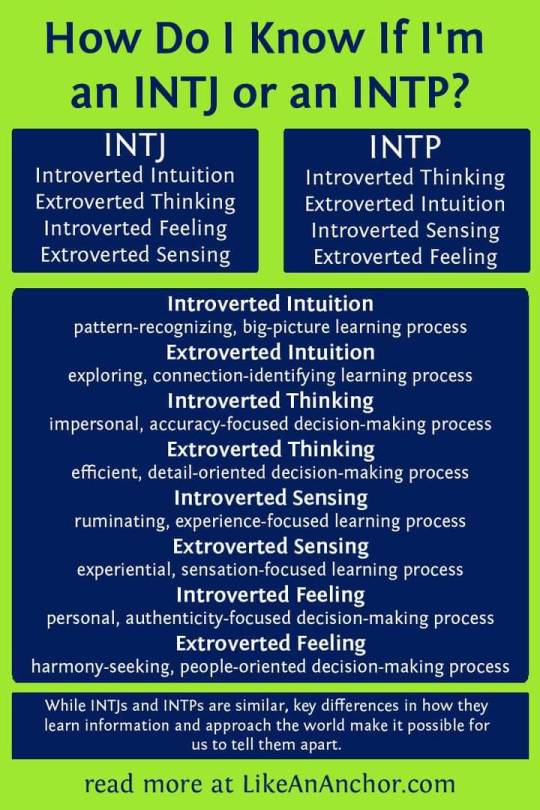
How Do I Know If I’m an INTJ or an INTP?
The way these cognitive functions work together makes INTPs and INTJs similar in some ways and very different in others. They might seem near-identical times but their underlying thought patters and motivations don’t look nearly as much alike as you might think.
J/P is a little odd for introverted types
The J/P preference describes how people relate to the outer world. J-types extrovert their judging function (T or F), while P types extrovert their perceiving function (S or N). Since INTJs and INTPs are both introverted, they lead with a function oriented toward the inner world. This means INTJs are actually a dominant perceiving type and INTPs are a dominant judging type.
If you’re an INTJ, you’ll typically find your Intuitive side is the one that feels most comfortable. Pattern-recognition, big-picture thinking, and seeing things from multiple perspectives come naturally to you. You probably place a higher value on experiencing and understanding life than on controlling it. However, others may see you as being more organized and disciplined due to your extroverted judging function.
If you’re an INTP, you’ll typically find that your Thinking side is the one that is most comfortable. Making sense of things for yourself, typically using impersonal criteria, comes naturally to you. You probably like having things and ideas settled and decided even more than you like experiencing life as it happens. However, others may see you as more unpredictable and/or spontaneous due to your extroverted perceiving function.
Your co-pilot’s influence
INTJs and INTPs both have an Intuitive function and a Thinking function as the first two in their function stack. However, each type uses those functions differently and relies on them in a different order. We’ve already looked at their dominant functions, so now it’s time for the co-pilot.
If you’re an INTJ, you support your Intuition with a Thinking side that helps you relate to the outer world and made decisions. You probably notice it most when weighing impersonal criteria for decision-making, working with facts and data, or finding ways to explain your thought processes to other people. It’s not your most comfortable process, but you can get really good at using Extroverted Thinking if you take the time to grow and develop it.
If you’re an INTP, you support your Thinking with an Intuitive side that helps you understand the outer world. You probably notice it most when you’re learning and processing information because it helps you experiment and explore to discover how things connect and what is possible. It’s not your most comfortable process, but you can get really good at using Extroverted Intuition if you take the time to grow and develop it.
You use Thinking and Intuition differently
We talked about this point already when discussing the primary and co-pilot process. It’s worth spending more time on, though, because it’s one of the most important things to understand if you want to tell INTJs and INTPs apart.
In terms of Thinking, if you’re an INTJ then your Extroverted Thinking thrives when using objective data. Collecting facts, taking measurements, and solving practical problems are second-nature to you. For INTPs, the Introverted Thinking process is more subjective (i.e. “What makes sense to me?”). You tend to ask questions and formulate theories more readily than you focus on effective real-world implementations of ideas. This doesn’t mean INTJs never theorize or INTPs are never practical. It’s more about where your primary focus lies and how you most naturally think.
In terms of Intuition, INTJs use it so naturally they may not even realize how good they are at noticing patterns, switching perspectives, and figuring out what’s “behind the curtain.” Since Intuition is your primary function it’s the one you’re most comfortable with. For INTPs, Intuition is the co-pilot process and it’s outward focused. It makes you good at coming up with new ideas and brainstorming possibilities. The way INTPs experience Intuition tends to be more exploratory, while INTJs will be more like observers.
What happens in the loop
Our co-pilot process is not oriented the same way as our primary process (i.e. it’s extroverted for introverts and introverted for extroverts). Because we tend to be more comfortable with processes that work in our preferred world we often bypass our co-pilot process and try to use our tertiary process instead. This is called a “loop.” Here’s what it looks like for INTJs and INTPs:
If you’re an INTJ, you have Introverted Intuition as your primary function and Introverted Feeling as your tertiary. When you get into a “loop,” you become more preoccupied with your personal values system. You might even find yourself making decisions based on your emotions. If you spend too much time in this loop you may loose touch with your more logical side. This can lead to becoming withdrawn, self-righteous, and hypercritical of other’s values and beliefs.
If you’re an INTP, you have Introverted Thinking as your primary function and Introverted Sensing as your tertiary. When you get into a “loop,”you may get stuck focusing on past experiences and become hyper-attentive to real-world details. You may also want verifiable, sensory facts but struggle to process them. Spending too much time in the loop can get you caught-up in the past. This can lead to trouble processing past mistakes and moving forward into the future.
How you are under stress
When people are trying to find their best-fit personality type, they often focus on figuring out which cognitive function they’re most comfortable with. But the functions that you don’t use well can also provide clues as to what personality type you are. The inferior function (the lowest on a four-function stack) typically shows up when we’re stressed. You might also use it to take a break and relax, and it often shows up in our favorite hobbies.
If you’re an INTJ, stress can bring out your inferior Extroverted Sensing. When stressed-out, you can become obsessively focused on external data, overindulge in sensory pleasures (food, drink, shopping, etc), and develop a suspicious, hostile attitude toward the outer world. You can also use this function in a healthy way, and you might find that you enjoy activities that require sensory engagement (like cooking, hiking, or painting).
If you’re an INTP, stress can bring out your inferior Extroverted Feeling. When stressed-out, you can become hypersensitive to relationships and much more emotional than usual. You might also respond to this by trying to swing the other direction and emphasize logic to an extreme. You could also use this function in a healthy way, and you might find that you enjoy activities that tap into your Feeling side (such as mentoring someone or joining an organized social group).
#myers briggs#personality test#intj#intp#intj personality#intj female#mbti intj#intp female#intp personality#intuition#intuitive#introvert#introverted#function stack#architect#mastermind#scientist
23 notes
·
View notes
Text
ATEEZ San MBTI Analysis
- ISFP -
An in-depth analysis of an idol's MBTI type. Based on my opinion and observations, may change later. Not an expert.

ISFP (Fi - Se - Ni - Te)
Dom: Fi (Introverted Feeling)
A judging function that uses one's own values and belief to compare and make choices
San is incredibly Fi valued - he has a strong belief of being genuine and wants others to do the same. Fi focuses on authenticity and realness - being a highly moralistic function, it would not feel right for an Fi user to put up a front or particular image just to suit other's tastes/expecations.
His very Fi answers from Singles 2021 interview:
How I look at people
I definitely look at people based on their morality. No matter how nice of a suit they show off, It's hard for me to like them if they are rude to others. There may be achievements that can be achieved by working hard in a short period of time, but because morality cannot be made overnight, I think much more effort is needed.
Impact on the fans:
...Our fans may have received a lot of influence from us, but I hope they can all form their own values nonetheless. As much as possible, I tend to refrain from saying things that are likely to be judged as good or bad because I am worried that fans might get the wrong idea due to what I say.
Aux: Se (Extroverted Sensing)
A perceiving function that uses our 5 senses to process the external world.
San is in tune with his environment, always paying attention to others and events in the moment.
“For San, it’s movies and dramas [that inspire his performances], he takes those characters on,” explains Wooyoung. San, widely lauded for having an explosive stage presence, makes his creative choices the day of". Very Se of him to make decisions without prior planning. I've also noticed Se dom/aux type performers often have "explosive stage presence" as they're usually focused on the image and presentation of their performance.
“If there’s something I think of that I want to do that day, I share it with everyone to see if it will be okay. Then we create that image together and I simply express myself.” - i-D Magazine interview
Tert: Ni (Introverted Intuition)
A perceiving function that uses one's own personal insights and ideas.
San always had a dream of becoming a singer since he was young. Having Fi - Ni, he chose his heart and pursued his dreams. Passion drives Fi and Ni towards their visions.
Inf: Te (Extroverted Thinking)
A judging function that uses established facts and systems to make objective, working decisions.
San uses his Te to plan and pursue his goals. He always gives it his all in his career, constantly improving in his singing and performance. He loves what he does and takes the effort and steps to achieve his goals.
___
Why he's not an INFP:
Although both types are Fi dominant, their aux and tertiary functions are different. INFP has Ne-Si (Extroverted Intuition - Introverted Sensing), while ISFP uses Se-Ni. From what I've observed, San doesn't really seem to use Ne.
INFPs: IU, SF9 Hwiyoung, DAY6 Wonpil
___
Other analysis:
Enneagram | Birth chart
___
Kpop typology list
___
Side blogs:
Kpop astrology @rainy-astrology
Kpop fanarts @rainy-artworks
#san#choi san#ateez#ateez san#ateez mbti#mbti#kpop#kpop mbti#atiny#myers briggs type indicator#typology#cognitive functions#myers briggs#isfp#introverted feeling#extroverted sensing#introverted intuition#extroverted thinking#cognitive function stacks#mbti cognitive functions#isfp mbti
33 notes
·
View notes
Text
It's so funny to witness ESTPs in their later years (INFJ-aspiring) growing more soft, gentle, cutesy, well conditioned
On the other hand the exact opposite happening to INFJs (ESTP-aspiring), it's really funny
#just from seeing my sister and my friends#like WHAT HAPPENED THERE#i mean ig it's harder to notice upfront but if they're family it's REALLY obvious#they do be going ROGUE#tis funny#mbti#jungian psychology#esp if the Ni in their function stacks is getting too much freedom#like it needs to be kept down a LITTLE
0 notes
Note

alienation through obsessive categorization
thots on astrology? related, thoughts on mbti?
k i like that you guys just pop in my inbox from time to time and invite me to run my mouth about topics and concepts. like truly what else is this website for.
anyway astrology (& sorry, most of what i know here pertains specifically to europe in the middle ages onward) is genuinely such a bizarro historical case of a science whose core epistemological presupposition (a geocentrist and specifically anthropocentrist cosmology) has completely fallen out of favour in both popular and professional discourse, and i don't think most people appreciate how weird it is for astrology to continue existing with this degree of popular and mainstream participation lol. like most fringe science actually bothers to have some semblence of its own reactionary epistemology to fall back on; astrology just doesn't seem to care. it would be like if the medical guilds fully endorsed the position that blood is circulated in the human body by the heart, but then also recommended as treatments for clotting disorders medical practices that only make sense on the supposition that the liver is the origin of all blood and is continuously creating more of it. like no other science that i can think of tries to have it both ways to the extent astrology does. like, one reason phrenology and eugenics are bad comparison points here is because they're very much copacetic with post-enlightenment naturalism and evolutionary transpositions in the social sciences. astrology, like, intellectually is not and yet here it is anyway. ideology innit.
anyhow i assume the reason you asked about this in conjunction with mbti is because today's astrology is largely purporting to provide psychological analysis and is therefore more similar to a system like mbti than to the historical use of star-reading as a predictive science. obviously both astrology and mbti are deeply reactionary in this respect and belong to a larger trend toward attempting to categorise, measure, and taxonomise the psyche, tho an important difference here is that mbti has hereditarian elements, which no form of astrology that i know of does. i think astrology's shift in the personal-psychological direction has to do with a few different factors, including medical astrological practice (orthodox in the european middle ages, then varying degrees of heterodox from the early modern period onward) and self-help movements in the 20th century.
but in any case it, mbti, and similar attempts at psychometry are, like, staggeringly essentialist in conception and practice, and i do think their current popularity reflects some deeply reactionary tendencies amongst people who often (not always) consider themselves otherwise progressive or leftist. it's honestly kind of worrisome how many people will jump on a project that explicitly aims to define static and immutable human 'types' as long as it's dressed in quasi-spiritual or psy-scientific terminology. like i do think we all need to pause and think about the ideological ends and consequences of how we talk about each other and our bodies, minds, and birth circumstances 😵💫
#HOWEVER#mbti if done through the cognitive function stacks as a tool for self knowledge and exploration is awesome#like i’ve learned a lot about my own cognitive processes through reflecting on other infj’s discussions of our issues#mbti#infj#and also i’ve learned why some people really annoy me even tho we both mean well and it’s often bc we have a v different approach#to the same situation and the higher level knowledge helps me deal
949 notes
·
View notes
Text
Lawrence Oleander’s MBTI
After thinking long and hard about this wonderfully complicated man, I've come to the conclusion that Lawrence is an ISFJ.
Here's how I believe his personality fits within an ISFJ function stack and an attempt at expanding on his character, based on what I know about ISFJs.
Introverted Sensing:
- His Many bad past experiences with trying to get close to people made him incredibly guarded and distrusting of people's willingness to stay around him. He's been hurt too much and uses his experiences to predict the future. Those predictions are almost always bad.
- Can be a bit narrow-minded and has trouble empathizing with things he doesn't understand.
- He hates the unfamiliar; it freaks him out. He thrives under consistency and structure and when things are clear and concise. People usually aren't, and that makes him anxious.
- Has a hard time with big changes and needs time to mentally prepare for them.
- Wants to feel in control of the people he cares about and in control in general.
- When he's in the right headspace, he's very good at stalking and picking up details that other people might not notice as easily.
Extraverted Feeling:
- He hides himself away out of consideration of others, not just for his own safety.
- He hates any reminders that he's not normal. People being concerned about his behavior make him feel extremely on edge.
- Despite his desire to get away from everyone, he still periodically feels sympathy and empathy towards others.
- A small part of the reason he learns the things he does is, on the off chance that he finds someone who will stay, he'll be useful to them.
- He likes caring for things and feeling responsible for them.
- Is loyal to whoever stays by his side, especially if they manage to go through the grueling task of proving they're doing it willingly. Will go out of his way to take care of them and make sure they're “kept safe.”
- He doesn't realize it, but he desperately wants to feel wanted, needed, and appreciated. Will start to despise you if you continuously take whatever kindness he gives you for granted.
- Does not like being focused on for long. Even with someone he likes, it can easily be too much.
- Focuses so much on other people and their actions but represses and ignores his own emotions to the point that he's not even sure how he feels or what he actually wants a lot of the time.
- Needs time, patience, and lack of judgment from someone in order to feel comfortable opening up about any of his feelings.
- Spent so much time alone bottling up his negative feelings that he'll end up snapping at the drop of a hat. He doesn't have any healthy coping mechanisms, so he has a Lot of unprocessed baggage.
Introverted Thinking:
- Likes to plan things out in advance and tries to mentally prepare for whatever else could happen in the process.
- Even if his place is messy, there's still a structure to it. He doesn't care about the spills and smells wafting about, but his bottles of things are all labeled and organized in a way only he understands.
- He soaks up information that he in particular finds useful or interesting.
- Deeply fascinated by how things work and how things are connected. Definitely takes that fascination too far sometimes.
- Cares more about the function and purpose of things over any kind of aesthetic.
Extraverted Intuition:
- He occasionally opens himself up to new viewpoints. He has to feel safe and stable to do this.
- Tends to overthink about all the possible ways something can go wrong.
Note: I'm sorry, but I will likely only be doing this for Lawrence! I'm currently working on writing a LawrencexReader fanfic and won't have the time or mental capacity to make an in-depth analysis of any other characters.
28 notes
·
View notes
Text
Quick Analysis: Hitostat Cognitive Functions Test
I saw this cognitive functions test by Hitostat getting a lot of flack for its inaccuracy on the r/MBTI Reddit, so I thought I'd give it a go to see what came of it.

I would say that the top results Ti-Ne definitely point pretty accurately towards being an INTP, so I don't think it's terrible, by any means.
Obviously INTPs don't usually have Fi in their tradtional conscious cognitive function stack, so that's a little odd, especially considering that I don't really identify much with Fi in general, nor did I get the feeling that I was even answering with strong Fi during what would have been the relevant questions, but oh well.
I've noticed this in lots of other tests in the past where you'll usually score high on another function not in your traditional function stack, often times as an artifact of the test design. Most of the time, I score high on Ti, Ne, and Ni, so I was surprised to see the difference with this test. Still, if I were to test high on an unusual function, I WOULD expect it to be an introverted one because it aligns more with being an INTP, than scoring high on an extra function and having it be an extraverted one.
TLDR;
Not a bad test. Some common artifacts in final results, questions could be a little generic / obvious in their wording sometimes. Still gave accurate ENOUGH results to identify my type, if you know enough about MBTI to interpret the results yourself. Not an exceptional test, but doesn't deserve the hate it's gotten, in my opinion.
#mbti#mbti types#mbti personalities#mbti personality types#16 personalities#hitostat#intp#quick analysis
27 notes
·
View notes
Text
part 2 to my higuchi post cause i came up with more things to gush about (haha). he's so cute to me i want to shake him.

(moe higuchi for attention)

love his fangs. in general i like how his teeth are drawn. most other characters have flat teeth with (usually) minimal detail. his sometimes look uneven (cute).

i love his walk here, hands in pockets and all. he has so much swagger. he mostly runs (pathetically) in the anime but i imagine him to usually have this typical anime delinquent walk.
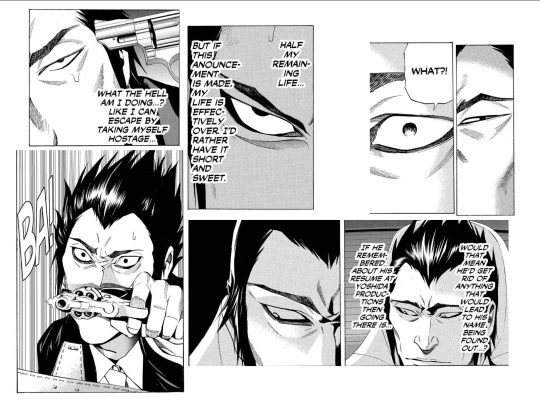

i think his eyes are really pretty. i like his eyeliner (haha). plus in animanga i prefer when characters are drawn with smaller irises/pupils cause it's more expressive. his only colored illustration in the manga just shows his eyes... i wish we got more but I GUESS it's fine.


i talked about pronouns in another post but i must confess that i prefer anime guys who use watashi over ore. it gives a softer/more feminine vibe. higuchi uses both but i like that he uses watashi in his thoughts. really moe...

it seems i'm not the only one who noticed it, because i found it mentioned in his pixiv dictionary entry ^^

i know i'm grasping at straws to feminize him (hey, why not). i like him sitting with crossed legs. and not the (more masc) version where you put your ankle on your knee. i even grabbed anime screenshots.
also: i like him drinking wine while the other guys are drinking whiskey at their meeting at mido's house.

ok let's talk about his color scheme. for a while i was convinced he's supposed to have black hair, but the anime made it brown (which i enjoyed, he's red-coded so it makes sense). but he actually is supposed to have brown hair in the manga as well. in the colored ver. i like how they made his highlights brown to show this (while the characters with black hair have grey highlights). so it feels kinda wrong to see the game ver. with black-grey hair lol.
i like how the colors of his shirt and tie are swapped in the manga and anime, both palettes are nice. i guess the grey shirt is more special so i think i like it more? but the game colors are really fun. i have to draw him with this color scheme more (i did it for the cover for this post!). i feel like purple and red are both colors that fit him.
his birthday is on 6th of june and he got the death note on the 14th of june. isn't that just the worst birthday present? haha.
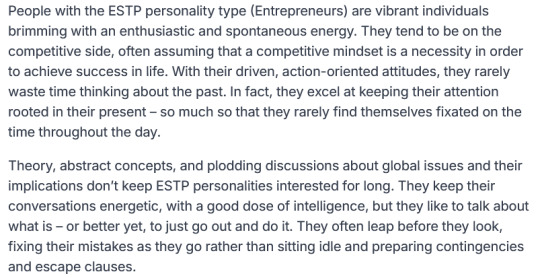
i'm not enough of an mbti nerd to diagnose anyone but the people on personality database say he's an ESTP. it's actually close to misa's ESFP (i think it should be similar if it's just one letter off? thinking vs feeling. but it gets more complicated when you actually look at the function stack).
also i immensely enjoy the concept of unhealthy mbti. it just bascially means you're an asshole. so in my opinion higuchi is an unhealthy ESTP. here's some stuff i found when looking it up. source: people on reddit and website psychologyjunkie.com (don't treat this stuff too seriously i think mbti is just good fun)


here's some people comparing unhealthy ESTPs and ESFPs. it's literally higuchi and misa?? man, what a duo.

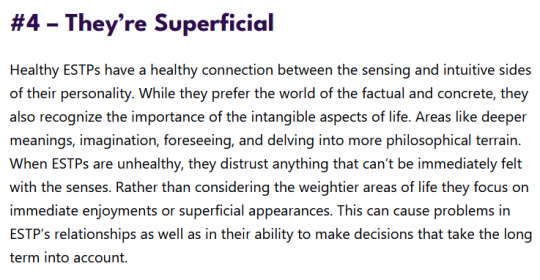
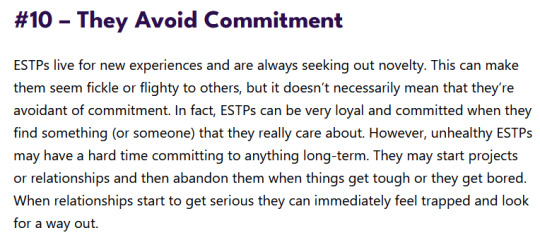
some more stuff that fits. hm, i also like that he's an extrovert but he's terrible with people. very funny. most of his coworkers are introverts, save for takahashi and hatori and yet the introverts like namikawa have better social skills.
another funny thing i've seen mentioned by some japanese people is how complicated the first kanji (卿) in his first name is and how difficult it would be to write in the way light did. light's just too good lol.
15 notes
·
View notes
Text
Everything Currently Wrong with Typology (And, How We Can Fix That)
Most people within the personality typology community consider typology to only be, at best, something to be relegated to merely being some kind of hobby, or a way to 'break the ice' with people. At worst, it's a waste of time, even a straight-up "pseudoscience". And, in a way, it is all of that. But essentially, the only reason why that's even the case is because we have been doing it all wrong entirely.
1. We're basing things on misinterpretations on top of misinterpretations.
While probably true for personality typology in general, at least to some extent, this is especially true with the Jungian-inspired systems. Nobody seems to know what Jung originally intended, or even care. Of course, there are people that do genuinely try to get an idea of what he had to say about psychological type, but they usually don't go far enough to get a complete picture, and, naturally, they're an exceptional rarity to begin with. The majority of typology enthusiasts never go past Pop-Myers-Briggs -- which is what I call the so-called "MBTI system" (for the record, the MBTI is not a system, it's a psychometric instrument) -- to examine its roots; where it came from. In fact, it's more common for them to look at other Jungian-inspired models, such as the Socionics ones, or C. S. Joseph's system, Objective Personality System, etc.
Why does Classic Jungian (what I call Jung's original system,) get so little attention? Why do so little people bother to take the plunge? I genuinely don't know. Maybe it's the lack of easily accessible resources on it, or -- perhaps more prominently -- maybe everyone just assumes that, since Pop-MB can trace its origins back to Classic Jungian, that they must essentially be the same thing. Well, they aren't. They simply aren't.
The problem started with Isabelle Myers.
When she was coming up with the Myers-Briggs Type Indicator alongside her mother, Katherine Briggs, she, of course, had to read through Jung's theory to make a psychometric assessment meaningfully applicable to it. Unfortunately, though she got most things right, she got at least one thing very, very wrong: the "attitude", or orientation, of any given type's auxiliary function.
This single mistake is much more devastating than one may think at first glance. For the uninformed -- the rest can take it as a refresher, Jung often used the word "attitude" while talking about extroversion* or introversion; while he did use "attitude" to refer to other things, it was not uncommon for the term as he used it to be referring to either. Puzzling as the word choice may be, the reason he chose that particular word is not as important as what role attitude, in this sense of the word, plays in his theory.
With the majority of contemporary typology models, Pop-MB included, we often think of functions themselves as possessing a particular attitude. In fact, we treat Te, for instance, and Ti as being distinct, independent functions due to this notion. However, for Jung, this would be a misunderstanding of how attitude applies to overall type. In his own view -- and I can't stress the importance of this enough -- it is the person's own psyche who has the attitudes, NOT their functions.
What does this mean? It means that, under his model, consciousness is what is either introverted or extroverted, and the functions are then modified by either orientation. This also means that, in essence, there aren't eight functions in total, but only four. Yes, four. But that's something to elaborate upon in a later post. A more relevant-to-this-moment implication is that this means the auxiliary function of each of the sixteen types, as far as Jung is concerned, shares the exact same attitude as the dominant function. This changes everything about a person's function-arrangement, or function "stack" (god i hate that word,) in terms of how it manifests overall in one's personality and personal life. Well... maybe not literally everything, but pretty much so.
Now, I know some skeptics have read the last few paragraphs and are suspicious about the overarching claim being made about the auxiliary's attitude in Classic Jungian. Because I wish to keep this post as concise as possible, I'll present arguments for this being Jung's true intention in a later one. I also do not want to give the impression that I actually agree with Jung here about the auxiliary's attitude: in fact, I personally think functions do, in fact, possess attitudes, as opposed to the psyche, and that the orientation of the auxiliary is independent of whatever the dominant's is. (Edit 03/29/2025: I have since changed my mind on this matter.)
Anyways, if this all started and ended with Myers, the current state of Jungian and Jungian-adjacent typology wouldn't be much of a problem as it is now. Unfortunately, it seems that not only has nobody caught on to her fatal mistake, but that, in fact, the mistakes only compounded. It even got to the point that trained practitioners of analytical psychology (what Jung referred to his psychology as,) such as John Beebe, regurgitate the misinformation and add on to it.
Shadow "stacks", loops and grips, the distortion of conscious vs unconscious as it applies to function-arrangements -- take your pick. These have only served to confuse and mislead people as well as further damage the veridical integrity of personality typology overall. As per usual, I will save those too for a later post, or posts.
*Before someone tries to "correct" me: I know Jung spelled it "extraversion". I don't care; I'm used to the other spelling, and besides, language evolves. Respectfully, get over yourself.
2. The conceptual and empirical bases are lacking.
If you happen to be well-versed in typology, entertain the following questions: what is a "cognitive function"? Where's the evidence that they exist? If there is evidence, how do you know that it's good evidence? How about Enneagram types, instinctual variants included. What are they, where do they come from, and how do we know they definitely exist?
I could go on with every other system too -- all except Global 5. Why that one in particular? Because at least with that, it's very clear what makes a Global 5 type, and everything that comprises it, what it is. Not to mention it's based on the five-factor model of personality: the empirical gold standard of personality theory in mainstream, academic psychology. Why don't we have that with the other systems? Maybe it's mostly because it's harder to find evidence for and elucidate, say, a "cognitive function", than easily-observable behavioral traits. But I don't think that's really a proper excuse: it simply means the onus is on us to do the work and provide both a sound, solid theoretical basis and adequate evidence for the relevant theories that many claim are valid. And as for those that don't claim that... well, gotta wonder why that could possibly be. Hmm...
3. There’s little to no consensus to be found.
Speaking of conceptual bases, it gets even more difficult to establish those when seemingly nobody can agree on anything at all. How many conflicting definitions and ideas of things do we need? What exactly is Ni? Is it unconscious processing of information? Is it having visions of the future? Or what about Te, is it about productivity? Or maybe it’s looking for empirical evidence? Both have similar respective themes for each idea of them, but that’s not good enough. It needs to be explicitly said what the definition of each term is, and then such definitions need to be agreed upon and established as standard. And that’s to say nothing at all about grounding such decisions on reality.
4. We’re not realizing typology to its fullest potential.
This isn’t really something that can be immediately fixed, at least not entirely -- mostly due to the problems mentioned above. However, a good start is to recognize that the potential does, in fact, exist.
Typology isn’t only good for entertaining curious nerds or otherwise ‘overly’, I guess one could say, enthusiastic people. Knowing your type or the types of others, as a concept, isn’t just something to be considered “for fun”, although I will readily grant that it can have lots of recreational value if you enjoy that sort of thing. No, personality typology is much more than recreation. In fact, at the risk of sounding insane, type is one of the most important, if not the most important, things you can know about a person, especially if it’s a Jungian psychological type (not quite sure about the other kinds of systems yet).
A criticism I already see coming is that type, supposedly, cannot possibly capture the sheer nuance and inner complexities of a person. To this, I have only two things to say:
(A) Of course type isn’t a substitute for fully understanding the finer details of the individual case. There will never be a suitable replacement for understanding the complexities of someone, including yourself, by actually looking at and analyzing such complexities. However,
(B) Understanding someone’s type is the best way to contextualize those finer complexities and to broadly guess how they may evolve over time, as type is the very ‘blueprint‘, as it were, from which the rest of the psyche is ‘constructed’. In addition to that, knowing the types of multiple people provides contrast among them; it helps you to compare people in a relatively quick, yet meaningful way, even and especially if they share a common background, belief set, et cetera.
To put it in a way that may be more immediately connectable to your own life: think about all the times you’ve interacted with or have otherwise seen someone whose behavior, words, ideas -- anything at all, that you just couldn’t understand. Someone who seemed to defy your own common sense, maybe even rationality itself. Someone that, no matter how hard you tried, you just couldn’t wrap your head around. Maybe they did something that you found had no logical reason for doing, or perhaps you found that they believed in something absurd that anyone with their head screwed on straight wouldn’t entertain for even a split second.
You might have concluded that they were simply beyond understanding. I say that you were simply missing the tools that personality typology could have provided to help gain that understanding. Whatever that person, or persons, were and whatever they did, or were like, you just might have been able to get a better grip on the “why” behind it all by apprehending what their type or types were.
And that’s just one example of the application of typology; there’s certainly more (hey, I should do a post about that sometime later!)
Personality typology is very important. Which is why it’s unfortunate that most would say otherwise, because if more people understood that, we would be that much closer to understanding eachother so much better. And with the way the world is right now, I don’t think that’s an insignificant thing to want -- I think most of us could at least agree on that much, if nothing else I’ve said here.
5. So. What to do about it?
Of course, I’m not here to simply criticize. Contrary to merely taking a destructive attitude, the intent here is to also be con-structive and illuminate a better path forward. It might not be the best path, it might not even be good per se, God forbid, but I think it’d be at least slightly better than what the typology sphere has been doing for so long now. The attentive reader may have already noticed that I’ve alluded to a few things in the preceding sections, but now, I will outline everything clearly and more completely here:
First, we need to drop the concept of co-existing personality “systems”, especially when they address the same or very similar subject matters, such as the Jungian[-inspired] ones, to name just one example. While I’d never wish to imply that we can’t have competing ideas, I do not think that’s what such systems are at all, not in practice. As a whole, the differing systems, rather than being ideas that people ultimately seek to either support or disprove, they’re treated something more like different items on a shelf in a candy store. As in, they’re thought of as being arbitrarily selectable alternatives, with none of them being more or less correct than any other on the shelf. The Truth, capital ‘T’, isn’t arbitrary, and in following that tenet, we have to give up the notion that it’s perfectly fine to have ten-something different ‘truths’ at the same time. Essentially, instead of “systems”, we ought to have different theories in the scientific sense of the word “theory”.
Second, we have to return to the roots and start from scratch. I don’t know what to do with other families of models so far, like the Enneagram systems, or Psychosophy and Attitudinal Psyche, but when it comes to the Jungian and Jungian-inspired family, I do have a particularly strong opinion on the next course of action. We have to drop every single one of our current notions on what exactly Jungian psychological typology is. And I mean every single one. Then, we have to shift our focus back to the original source: Carl G. Jung, and carefully analyze what he was saying, what the implications of that are. Luckily, someone already seemed to have done this for the most part. Akhromant has, putatively, carefully read Jung, and then presented what he found here. Despite the resulting interpretation not fully matching up with the original model, I nonetheless find myself enamored by Akhromant’s work, and a lot of what I am to do (and, really, what little I’ve already done with this post,) on my own website here will be largely inspired by it. I’ve found his model, as much as he’d probably prefer I’d not call it “his model”, to be very powerful and nuanced -- miles better than Pop-MB, Socionics, or any other such model I’ve seen by far. Right next to reading Jung himself, I think studying Akhromant’s ideas and taking them into consideration at the minimum is a very good start.
Third, once the foundation has been carefully reestablished, we must take care to support it and to not let it crumble again by negligence. After all, at such a point, we only have a weakly supported hypothesis, at best. We have to refine our ideas and connect them, practically or theoretically, to already well-established ones in related fields, including but not limited to broader psychology, sociology, and philosophy of mind -- and if we can’t, go back to the drawing board and try again. We have to gather empirical data that lend support to such ideas, statistical or otherwise, in order to show to ourselves and others that this is actually grounded in or otherwise connected to our material reality. And most importantly of all: we have to be willing to give our ideas up if and when it ever becomes clear that they just do not or can not work. This last point may be the most important one of all. The idea here is to find the truth, not to stick to our preferred dogmas.
6. Conclusion. Or: to end a yapping session.
Hopefully, I’ve not only made my thesis statement quite clear over the course of this post, but made at least one person reading this want to see personality typology change drastically for the better, or perhaps even get the urge to look deeper into the matter themselves, too. Either way, I simply want typology to turn itself around into a proper science, because it has more potential than I think most even realize.
As for the future of this website, particularly the blog you read right now: the next post will be about… whatever the next post will be about. Might come in the next couple months, maybe not. I have more than a few ideas for posts, even ones not strictly related to typology, but I want to stay on that topic for now -- I just don’t know which post idea is best for doing next. Could just be overthinking it, though.
Regarding the more resource-oriented portion of the website, I hope to finish up the preliminary work for it in at least a few months, if not sooner, with stuff gradually added on to it after as time goes on. Expect a future, more-complete version of it to be absurdly detailed, as I want to cover any and all personality typology models that exist, from the well-known to the obscure. Feel free to suggest ones below!
Or, just call me a dumbass that doesn’t know what the hell they’re talking about. Hey, that works too.
11 notes
·
View notes
Text
HOW TO MEMORIZE MBTI COGNITIVE FUNCTIONS/STACKS
okay, so we're all familiar with the intj, esfj, entp and all those stuff! 16personalities would say that those people are merely "introverted, intuitive, thinking, and judging" and same goes to other mbti types, but when you fall deeper into this mbti thing, you realize that there are cognitive functions!! and now you're crossed with introverted intuition (Ni), extroverted sensing (Se) and all those stuff; sure you're familiar with them now, but you're still stumped on how you'll be able to memorize it!
people often say them memorizing it just "clicks" with them someday. but what if i tell you there's an easier way to memorize it?
i'll now share you an explanation that is easy for me to understand; i hope that it'll be as easy for you as well and you can use this to your advantage!! i'll try to make it succinct as possible with additional visuals for easier understanding! (i'll exclude the explanation of what the E/I, N/S, T/F, and J/P are, since am sure most of y'all are familiar what they stand for)
---explanation below---
xxxO (J/P)
• dictates whether xxOx is an extrovert or introvert function • J = dictates xxOx is an extrovert function (Oe) • P = dictates xxOx is an introvert function (Oi)
Oxxx (E/I) [Dominant and Auxiliary Function]
• dictates whether which of the two functions (xOOx) are the dominant function and auxiliary function
The Tertiary and Inferior
• follows an alternating stack by reffering to the first 2 cognitive stack • Oi Oe Oi Oe - or - Oe Oi Oe Oi • inferior function is the opposite of dominant function: N-S, F-T; and extrovert-introvert • tertiary function is opposite of auxiliary function: N-S, F-T; and extrovert-introvert
ISTP:
I hope those make sense XDD
But!!! I'll provide some visuals to better understand it. Let's use ISTP, ESTP, ESTJ, and INFJ as our examples! (beginning of demonstration always starts with a "XXXX") [there's also an image description provided :>>]
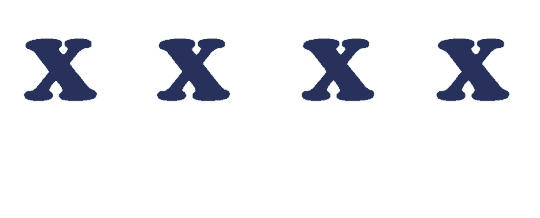
ESTP:
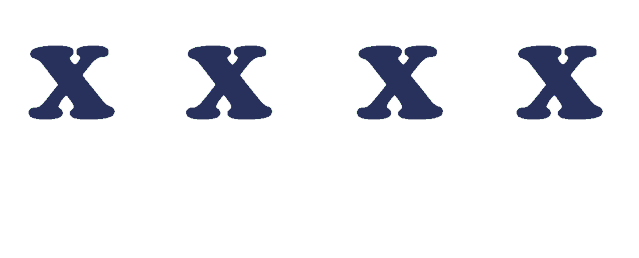
ESTJ:
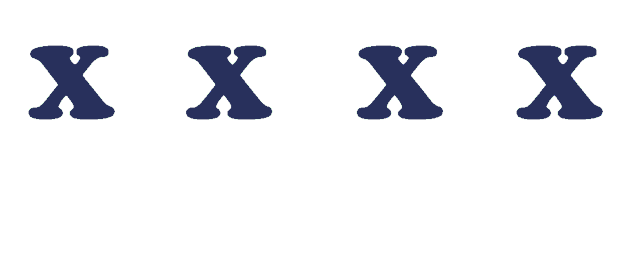
INFJ:
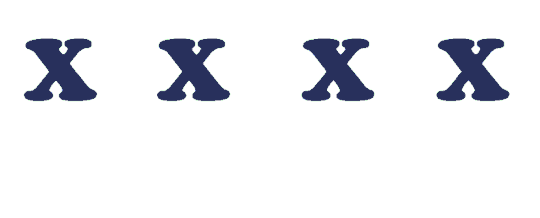
I hope this helps!!! You can ask me further about stuff related to this post if youre still confused, i'll try answering as best to my knowledge! (i'm still learning thou coz LDKSFDHSLGF)
#mbti#mbti types#mbti personalities#mbti personality types#estj#esfj#istj#isfj#estp#esfp#istp#isfp#entj#entp#intj#intp#enfj#enfp#infj#infp#cognitivefunction#mbti stuff#mbti cognitive stack#essay#explanation#tips#guide#text#gif#sxthee posts
17 notes
·
View notes
Note
What is your opinion on the site Personality Database? It's a website where people comment and vote (by majority) on a fictional character or celebrity's MBTI type. I notice people use different theories in their arguments, such as the 8 function stack one, that conflict with with 4 function stack, which isn't very conductive for a debate. This, and the majority vote system, means that many profiles get mistyped. Would you say debating there is of any use to study type theory?
You're asking two separate questions. The first is what I think about the website. I know about it because it pops up in searches but I don't use it myself, so I don't really have a strong opinion. With the voting system, the results are only as good as the people who've voted. Generally speaking, if you understand and accept the limitations of a system, then you're in a better position to get something useful from it.
The second question is whether it is of any use for studying type theory. This is a more complicated question to answer because it depends on several factors:
(1) Different people have different learning preferences. When your study materials match up well with your learning preferences, it helps you stay engaged and motivated to keep learning. So, the more important question is: What are your learning preferences and does the website align with them?
I was a philosophy major and worked as a debate coach, so debate is basically my second language. I'm fine with debate but I much prefer to learn through dialogue and discussion. I've known plenty of students who hated debate and couldn't engage because they found the atmosphere too antagonistic or polarizing.
The problem is that most people don't really know how to debate. A lot of "debates" are really just people shouting over each other and putting forth mere opinion as fact. Ideally, debate should be about bringing to light all the relevant points, evaluating them fairly, and determining where the truth lies by exposing falsehoods and fallacies.
However, since debate has a performance element, it's all too easy for ego and emotions to take over and derail noble intentions. If you're the kind of person who has a hard time concentrating only on the merits of ideas and keeping them separate from the people doing the speaking, then debate is probably not your ideal form of learning.
(2) The quality of the information provided in a debate can only be trusted to the extent that the debaters are knowledgeable people.
Beware that a lot of people are good at speaking confidently despite not really knowing what they're talking about. The problem with communicating anonymously on the internet is you don't immediately know who you're talking to and what level of education they have. An open comment section could easily include anyone, from 10-year-olds to college professors.
In order to benefit from the comments, you'd have to be able to judge their quality. But this implies that you already possess a certain level of foundational knowledge in order to judge well. But... if you already had that knowledge, how much more could you gain from a comments section?
As a general rule, when I'm a total noob at something, the first thing I do is seek out experts to learn from, people who've spent a significant chunk of their life devoted to the subject. I never want to risk being misled by inexperienced/ignorant people. I'd much rather slog through a dense book written by a well-respected person in the field than listen to a smooth-talking social media influencer with questionable credentials. I value my time and this is one way I protect myself from making costly learning mistakes or wasting my efforts.
(3) A debate is only educational to the extent that the information presented is representative of the subject as a whole.
Generally speaking, there are two kinds of debaters you ought to avoid when learning is your main goal: "egoists" and "dogmatists". These people don't take learning seriously and the way they present information can seriously bias your view of the subject.
- Egoists are skilled at "framing" a debate to make themselves look good. They believe that debating is about winning and they'll do anything to win, even if it means obfuscating the truth. They mainly care about getting attention, obtaining rewards, and/or feeling superior, so they only learn what is minimally necessary to achieve those ends. To them, knowledge is relative rather than objective, all smoke and mirrors.
- Yes, there are a variety of theories, so it can be difficult to reconcile them, or it can lead to people talking past each other. This can also produce tribal mentality as people pick sides. Dogmatic people usually start out as insecure or directionless students, so they're unconsciously looking for ways to compensate for their lack of confidence. By picking what they believe is a "winning team", they gain a more solid identity and feel more emboldened to debate and argue from a place of "authority". Unfortunately, dogmatic people end up having glaring blind spots because they're not willing to consider counterevidence and alternative viewpoints. Their learning is incomplete, and they like it that way.
This isn't to say that egoists and dogmatists can't be right about anything; it is to say that they only grasp a tiny sliver of the bigger picture. Have you ever flipped through introductory college textbooks? You'll notice that they all share a similar structure. They break the entire field up into subfields and then provide a review of the most important research for each. When you're new to a subject, getting a full and objective view of the entire subject is important for structuring your learning process logically. You won't get that breadth from egoists and dogmatists.
.
I'm a "holistic" learner, whether I like it or not. This means I have to be able to visualize the bigger picture or the final outcome in order to learn smoothly. For me, learning is like trying to put together a giant jigsaw puzzle, so it really helps to have the box with the picture on it as a guide. As a holistic learner, I welcome rather than decry the existence of many different and conflicting theories. I'm always looking to fill in the missing pieces of the grand puzzle, and one theory alone usually doesn't cut it.
If you've ever studied the history of science, psychology, or philosophy, you'll realize that there's a running narrative behind the development of major theories. New theories arise because people are responding to deficits in the theory that came before. Each new theory tackles the subject from a slightly different angle that was previously missed. I love when theories conflict with each other because that reveals the most important aspects of the subject to examine.
I don't subscribe completely to any one theory because I believe every theory has something valuable to contribute to the ongoing development of a subject. Observing a debate, I'm open to different theoretical viewpoints because I want to hear things I haven't considered yet or wasn't able to think of on my own. This fast tracks my learning. Thus, I only find debate useful to the extent that it adds something new to my understanding.
With my training in philosophical debate, it's easy for me to organize information quickly and ignore everything but the key points. I take key points from different theories and then assemble them into a framework that I can personally use and apply (this is how the study guides on my blog came into being). Similarly, if I want to type a person/character, I appreciate people bringing up details that I forgot/missed and then add them to my analysis. Also, different people perceive human behavior differently and divergences in perception often reveal important information, so I'm all about seeing exactly where people disagree.
However, not everyone learns well this way. Some people are easily overwhelmed because debates often present too much information too fast, in a messy, nonlinear format. It can be hard to pick out the key points and it's easy to get distracted by the "tone" of voice or the "dynamics" between the speakers. Whether the format will work for you, I don't know. Your mileage may vary.
9 notes
·
View notes
Photo

(via Growth Mindmap of ENTP Debater MBTI 16 Personalities Myers Briggs Jung John Beebe 8 Function Model)
#entp#mbti#i know people have lots of opinions on how functional stacks truly manifest but its interesting at least
3 notes
·
View notes
Text
Ponyboy & Darry Curtis: The Exploration of a Relationship Between an ESTJ & INFP.
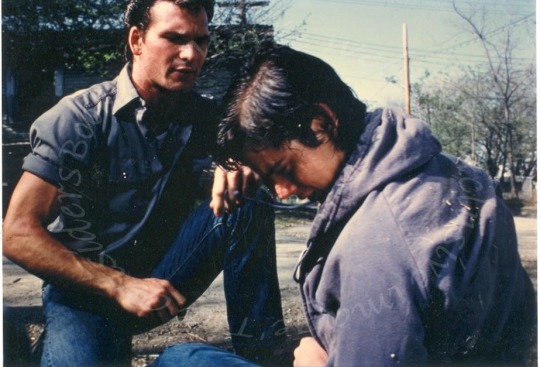
I feel like if there’s two types I see the unhealthiest relationship between, it’s INFP & ESTJ, and honestly there are so many characters I could have used for this analysis, but I feel like this one is the most classic examples.
Also, this isn’t to say that an ESTJ & INFP couldn’t get along, but given their contrasting personalities, it would take a lot of effort and may be difficult to do in a traumatic environment, especially the one the Outsiders sets up.
Note: To be honest, I was kind of surprised this won the polls until I remembered the musical came out recently.
Fi-Te vs. Te-Fi

Essentially, ESTJ and INFP, have the same traits, just a different order. So each of their dominant traits is the other’s inferior traits.
In the case of Ponyboy and Darry, their personalities clash because of their inability to develop the lower traits in their stack, as well as the way they react to traumatic events. In the death of Johnny and Dallas, Ponyboy begins to dwell on his feelings a lot, and pretty much shuts down, while Darry’s default is to push his emotions to the side, and he kind of expects Ponyboy to do the same.
Darry has a very logical approach to life, and gets frustrated at Ponyboy’s inability to think things through, a criticism Ponyboy eventually does choose to accept about himself. On the same hand, Darry’s insensitivity, and need to push his own emotions aside does create a rift between himself and Ponyboy.
Ne-Si vs. Si-Ne

As the “middle traits”, these usually are the traits that would help the two find middle ground, however, it seems to create a bigger rift. Ponyboy is constantly criticized for being trapped in his own world, so much so that he ignores the world around him, and ends up getting hurt.
His Ne, on the other hand, can be his greatest strength. He is the narrator, so we see the world from his lens, where he is critical of the society around him, and thinks of alot of “what if” scenarios, and is able to connect alot of things to what he’s read.
Darry often gets confused when he is able to do well in school, but not apply that to real life. He uses his Si, and his Ne to fuel his ideas, and to help him do well in school, but he is unable to use it in his real life. Ponyboy gets so distracted by his dominant functions, that he sometimes ignores his lower functions completely.
But when Darry uses his dominant functions, or pushes his emotions aside, Ponyboy sees Darry as being harsh, when really, he just wants what’s best for him, and to him, that is taking a logical approach to things. Being more firm, understanding his surroundings so he can protect his family.
The ENFJ Mediator

A huge part of the book, is the fact that the middle brother, Sodapop, is the mediator towards the brothers. As far as MBTI goes, he has none of the same cognitive functions as the brothers, but his stack shadows Ponyboys.
Still, Sodapop wants nothing more than group harmony, and usually takes in the emotions of everyone else before his own- which ends up being to his own detriment. Both brothers have trauma, and struggle with acknowledging their lower traits.
Darry has trauma from having to give up everything to raise his younger brothers at a fairly young age. Ponyboy has trauma from also losing his parents, and then… pretty much everything that happened in the book, from almost being killed to having to be on the run to the fire, and then watching two of his closest friends die right in front of him.
Because of this, Sodapop never gets a chance to process his trauma. He also lost his parents and had to drop out of school to help Darry. He watched his brother run away, and the next time he heard from him, he was in the hospital after being inside a burning building. At the end, he is the one who tells them what they need to here, and this also allows him to open up about his own feelings.
34 notes
·
View notes
Text
opinion: extroverts are easier to type than introverts
in mbti stacks, functions that are lower or inferior are often expressed through functions that are higher or more dominant.
especially if the inferior/tert functions are unhealthy, it's common to see that they almost "corrupt" or "cling" onto the dominant function, which is often why we see theories about loops, jumps, or grips.
this means that introverted functions are more visible when expressed through extroverted ones, since it's much clearer when they work together.
think of it like this: extroverted functions are windows, while introverted functions are walls. you can see through a window, but you have to break it down to see through a wall.
this also applies to objective/subjective functions, as those who are high in objective functions have higher visible subjective functions than the other way around.
#mbti#infp#intp#entp#intj#infj#enfp#mbti memes#cognitive functions#mbti types#entj#istj#enfj#mistype360#was this confusing?#respond and lmk
31 notes
·
View notes
Text
INTP Ti - Si Loop
Explanation on an MBTI loop. Not an expert. May change later.
___
Loops in MBTI occurs when a type begins to cycle between their dominant and tertiary function, completely ignoring the auxiliary and inferior. This is mainly caused from stress and can be continous until finally broken.
___
INTP Function stack: Ti - Ne - Si - Fe
When in a Ti - Si loop, INTP is stuck trying to find answers from previous experiences. They can get trapped in constant rumination about the past as they try to find the answer(s) to their issue(s). However, this does more harm than good as they will start to fixate on their past mistakes. Overanalyzing the things they could and should have done will paralyze them into fear and self doubt. Can be very indecisive. Their overthinking will stump their Aux Ne from functioning properly, which can cause INTP to get trapped with certain routines and structures (even if it is not benefitting them). Without the help of Ne, a looping INTP struggles to form new ideas and perspectives. It makes it difficult for INTP to be innovative.
To escape the loop, an INTP needs to learn to utilize their Ne properly again. They can try to put themselves in new opportunities that will get their Ne to function; new opportunities will hopefully get INTP to explore new ideas and concepts. Brainstorm possible solutions to get their gears going. Learn to be more accepting of their own mistakes and failures, be more self compassionate.
___
MBTI Notes
#mbti#intp#mbti intp#intp personality#ti - si loop#mbti loop#typology#cognitive functions#myers briggs type indicator#myers briggs#intp loop#introverted thinking#extroverted intuition#introverted sensing#extroverted feeling
88 notes
·
View notes